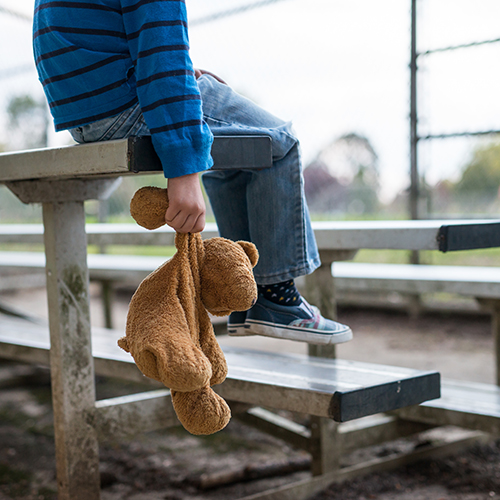21 June 2024

Delve deeper into developmental outcomes for abused children in out-of-home care – that’s the message from child protection experts at the University of South Australia following new funding allocations* to South Australia’s troubled child protection system.
Australia measures five key developmental domains at school start to identify children who are considered ‘developmentally on track’, ‘developmentally at risk’ or ‘developmentally vulnerable’.
Backed by new research, researchers say that removing children at high risk of serious harm into care can improve their physical health and wellbeing (by 27%), and their communication (by 21%) and cognitive skills (by 19%), but not their social and emotional development.
Senior researcher, UniSA’s Professor Leonie Segal says the study highlights an urgent need for professional therapeutic support for children in care.
“Children who are socially and emotionally vulnerable tend to struggle making friends, have low self-esteem, are often unable to follow school routines or work independently,” Prof Segal says.
“They may also struggle with emotional regulation, find it hard to focus in school and exhibit impulsive and aggressive behaviours – all of which contribute to a challenging school experience and learning outcomes well- behind their peers.
“Being developmentally behind at the start of school is a predictive indicator of poor educational outcomes. If we don’t intervene with appropriate and individualised supports when these children are young, they remain in the cycle of disadvantage, which is often a one-way path to poor mental and physical health and wellbeing as a teenager or young adult.”
This week, $4.5 million was allocated to the Office of the Guardian for Children and Young People to better advocate and support children in care. It adds to the $216.6 million boost for the South Australia’s child protection system.
Prof Segal says some of this funding should be directed to support better developmental outcomes for children who have suffered maltreatment and been placed into care.
“Removing a child from their birth family, in over-riding parental rights, and separating children from their parents, is a serious and costly undertaking with significant ramifications,” Prof Segal says.
“So, the onus is on our child protection system, together with education, health and human services to ensure that these vulnerable children receive the developmental supports they need.
“Placing seriously at-risk children into out-of-home care, for their immediate safety, may better meet their basic needs – for good nutrition, access to health care, and sleep – but children’s social and emotional development may be compromised.
“It is timely that the child protection, education and early learning sectors are increasingly recognising the critical needs of these most vulnerable children and their families to ensure they are given their best chance in life.
“What is critical however, is that the resourcing – budget allocation, skilled staffing and organisational arrangements – are there to enable this to happen.”
Notes to editors:
- *$4.5 million was allocated this week to the Office of the Guardian for Children and Young People to better advocate and support children in care. It adds to the $216.6 million boost for the South Australia’s child protection system.
- The UniSA study analysed records of nearly 75,000 South Australian children (born between 2003 and 2014; mean age of 5.7 years; 50.7% boys). 1345 children were had suffered substantiated abuse and 666 had entered out-of-home care.
………………………………………………………………………………………………………………………
Media contact: Annabel Mansfield E: Annabel.Mansfield@unisa.edu.au M: +61 479 182 489
Researchers: Prof Leonie Segal E: Leonie.Segal@unisa.edu.au




